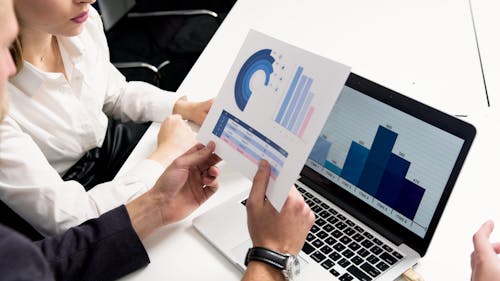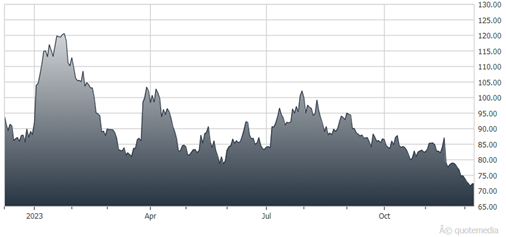Alibaba: A Study In Price, Value, And The Investing Process

Image Source: Pexels
The business at Alibaba Group Holding (BABA) continues to improve and generate more free cash flow (27% growth year-over-year, $28.1 billion FCF TTM, & 21.8% FCF yield) and higher sales (+9% year-over-year). The price of the stock does not often reflect that – until it does, notes Tom Hayes, editor of Hedge Fund Tips.
There are ~$60-70 billion of non-core assets (everything that is not Taobao, Tmall, AliCloud, or AIDC) that we can expect will be monetized. Add the ~$60 billion of additional net cash on the balance sheet plus $28.1 billion (TTM Free Cash Flow generation growing prospectively), and they will have enough cash to buy in 100% of the float.
If you don’t know what that means, let me put it this way: Say you own an apartment building with 10 partners. Then assume the cash that the asset generates is used to buy out your other nine partners’ equity (without you having to put in more of your own cash). Over time, you are the only shareholder left receiving the benefits of the asset/cash flow (if you are the patient partner who refuses to sell).
Alibaba Group Holding (BABA)

With that said, there was recently a whole bunch of noise circulating around how SoftBank pre-paid forward contracts are responsible for the price of BABA “being held down.”
What I can tell you from being in this business for many years is this: When price moves against you, it is seemingly never due to being early or wrong. When price moves with you, it’s always one's supposed “brilliance” that caused it. However, the only thing you can really control is your process, not the timing.
We have had some multi-baggers hit “fair value” in months. Others take years. Traders may say it is “wrong” or “early” – which is why there are very few of them on the Forbes 400. After all, good things come to those who wait.
Let me state this clearly from the masters Ben Graham (and Warren Buffett): In the short-term, the market is a voting machine based on emotions. In the long-term, it is a weighing machine based on fundamentals.
At the end of the day, price is only what you pay, while value is what you get. Is the business generating more free cash flow today than it was last year when it traded in the $60s-$70s? Are the free cash flow and revenues growing or contracting? Is the multiple/yield on that cashflow above your expected rate of return, and is it trading above or below its historic range and that of comps? Everything else would likely be a complete waste of time.
The price is detached from the intrinsic value, but a beach ball can only be held under water for so long. Eventually, physics takes over.
My recommended action would be to consider buying shares of BABA.
About the Author
Thomas J. Hayes is the founder, chairman, and managing member of Great Hill Capital, LLC (a long/short equity manager based in New York City). Before starting his own firm, Mr. Hayes worked with Cornwall Capital, LP (one of the firms featured in The Big Short book and movie).
On a weekly basis, he publishes his timely stock market commentary, Hedge Fund Tips with Tom Hayes videocast and podcast. He has a wide following in the investment management, hedge fund, and media community.
More By This Author:
What To Expect On Inflation, Fed Policy As Year End Approaches
Blue Chip Investors Can Bank On Old National
Three Small Caps with Big "Upside"
Disclaimer: © 2023 MoneyShow.com, LLC. All Rights Reserved.



